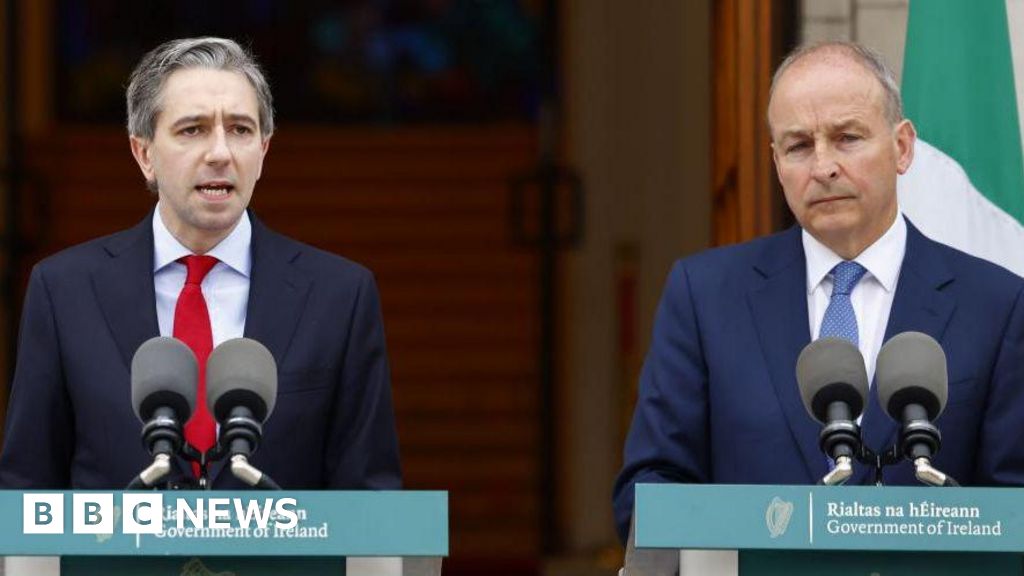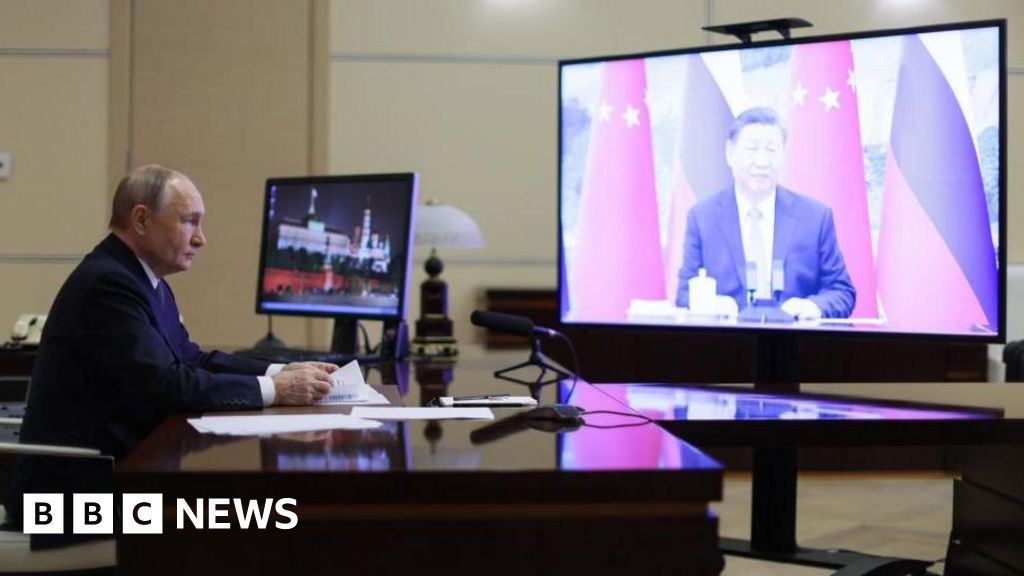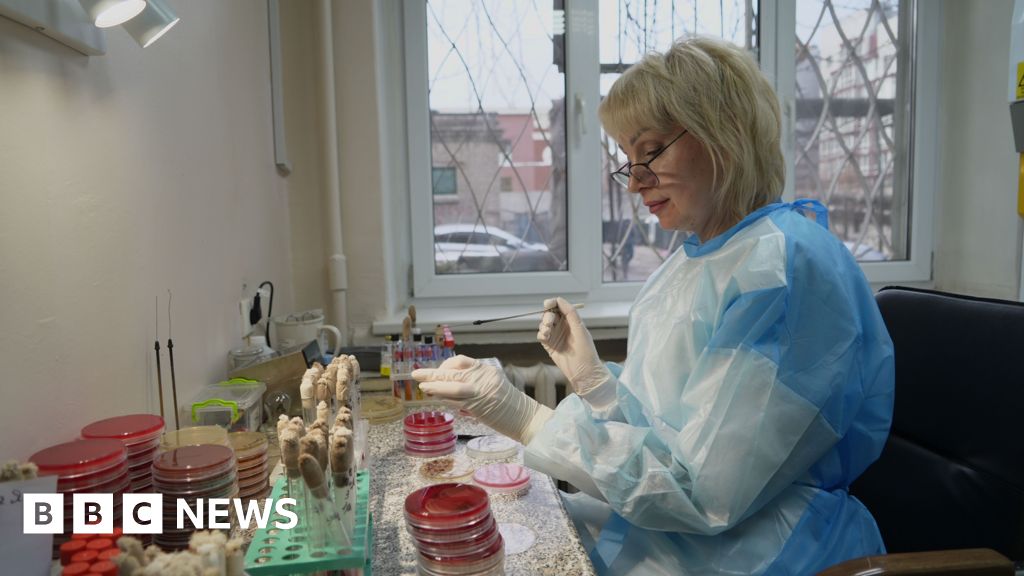ARTICLE AD BOX
By Suranjana Tewari
BBC News, Singapore
Image source, EPA
Image caption,An execution last month brought out a rare wave of activism
The only post on Tan Mei Qian's Instagram profile is a picture of her and two friends delivering a letter to Singapore's President.
The letter contained a request to spare the life of Datchinamurthy Kataiah, a 36-year-old man who has been languishing on death row for the past seven years.
His crime - trafficking 44 grams of heroin, around three tablespoons worth, into Singapore.
"The media is heavily censored. So there is little opportunity for us to raise our opinions here," Ms Tan said.
But that changed last month when another man, Nagaenthran K Dharmalingham, was executed for smuggling drugs into Singapore from Malaysia.
Birth of a movement
His hanging sparked a debate as young, aware and globally conscious Singaporeans began speaking up, mostly on social media - an unusual occurrence in politically passive Singapore.
In the days before Nagaenthran's execution, around 400 people gathered at Hong Lim park - the sole place in Singapore where protests are largely allowed without prior police approval.
In the past, rallies held there had attracted crowds of less than 50.
But this, a demonstration to halt the execution, was a watershed moment, activists say.
"Nagaenthran's case galvanised many in Singapore and made everyone realise how unforgiving and brutal our punishment system is," Jolovan Wham, the protest organiser, told the BBC.
Image source, Instagram
Image caption,Tan Mei Qian is among a growing group of Singaporeans speaking out against the death penalty
Nagaenthran was handed the death sentence for strapping 43 grams of heroin to his thigh.
In the months leading up to his hanging, his lawyers and family filed appeals and clemency requests asking for his death sentence to be commuted on the grounds that he was intellectually disabled.
One assessment found him to have an IQ of 69, a level internationally recognised as a learning disability.
But the courts rejected the claim and found that he knew what he was doing at the time of the offence.
There was hope that the pandemic, which led to a two year pause in executions, would alter Nagaenthran's fate.
But on April 27th, he was hung at dawn.
Widespread support
Most Singaporeans support the use of the death penalty but Nagaenthran's case has ignited debate over capital punishment.
Although death row prisoners are cut off from the outside world in many ways, many still try to keep up with what's happening through reading the papers and family visits. The news of anti-death penalty protests in Hong Lim Park in April has made its way to those on death row. pic.twitter.com/7Cnamycp6E
— Transformative Justice Collective (@tjc_singapore) May 8, 2022The BBC is not responsible for the content of external sites.View original tweet on Twitter
Singapore's government says its strict drug laws, including the death penalty, are an effective deterrent against crime, making it one of the safest places in Asia.
Just over a month before Nagaenthran's execution, Singapore's Home Affairs Minister K Shanmugam told parliament that the majority of residents still support the death penalty and consider it appropriate punishment for drug trafficking. He was referring to preliminary findings from a 2021 survey.
But he did concede that young Singaporeans' support for capital punishment for drug traffickers was lower than the national average.
The responses to Ms Tan's post reflect these findings: "lol go study lah and I hope you never ever get to experience the destruction drugs cause to both the addicts and their loved ones," one comment reads.
Another says, "Please la girl don't fall prey to this nonsense... propaganda. You have no idea what a drug-run state looks like".
"I think we are going in a good direction because there is a lot more conversation about it."
More executions to come
The increased awareness has been a crutch for the families of those on death row.
Image source, Reuters
Image caption,Angelia Pranthaman's (second from right) brother is facing a death sentence for drug trafficking
Datchina's family feels stronger and more resolute about his case because of what they saw at Hong Lim Park, said Kirsten Han, who has been campaigning against the death penalty for more than a decade.
"That is very distinct from other cases that I've worked on. Singaporeans are trying to find action to take themselves," she adds.
Nagaenthran's case prompted criticism from the UN, an EU representative and global figures like billionaire Richard Branson. International rights groups called it a "tragic miscarriage of justice".
"For the first time I see a group of people are voicing out against the death penalty. Social media is full of Nagaenthran's case across so many industries - business, actors, ministers," said Angelia Pranthaman whose 31-year-old brother Pannir Selvam Pranthaman is also on death row, awaiting an execution date.
Activists who have been trawling through court judgements and speaking to families estimate that there are more than 60 people currently on death row in Singapore.
UPDATE: The High Court of SG has granted the stay of execution of Datchinamurthy Kataiah, pending the legal challenge on 20th May. With no lawyer, Datchina represented himself today.
There will be no execution tomorrow. pic.twitter.com/lUqbhnqGYD
The BBC is not responsible for the content of external sites.View original tweet on Twitter
Prisoners - and their families - appeal their cases in Singapore's courts, often representing themselves because lawyers are unwilling to take on late-stage cases.
'Broken system'
As efforts continue to save those who have received execution notices, some are questioning the punishment itself.
Amnesty International says out of the 10 death sentences handed out in Singapore during the pandemic - one sentence was handed out on Zoom - eight were for drug offences.
Singapore is also one of the few countries in the world that have mandatory death sentences for drug crimes - those caught carrying more than 15g of heroin are subject to the death penalty.
UN experts have said the death sentence is disproportionate for the amount of drugs in question. Many also say those convicted are victims of a larger problem.
Image source, Getty Images
Image caption,People in Singapore and Malaysia protested Nagaenthran's execution
"Our system is such that we impose the harshest penalty on the mules. But unfortunately the drug lords behind the mules are still doing their business in other countries," criminal lawyer Suni Sudheesan said.
Calls for abolition
Experts say there is a global shift towards abolishing the death penalty, and that Singapore is an outlier among developed nations.
That said, Asia is home to the top executioner in the world.
China is believed to execute thousands of people every year, but official data is not publicly available.
Indonesia continues to use the death penalty for drug trafficking but hasn't carried out an execution since 2016.
Singapore's neighbour Malaysia has a moratorium on executions and has amended its law, but Human Rights Watch says judges continue to hand out death sentences, rather than life imprisonment, in the majority of cases.
Other countries in Southeast Asia - Philippines, Myanmar and Thailand - no longer have capital punishment.
"Singapore's international reputation has already deteriorated significantly with the execution of Nagaenthran," said the Anti-Death Penalty Asia Network in a statement after his death.
Despite renewed calls from across the world for Singapore to reconsider capital punishment and existing death sentences, abolition or even a moratorium on executions seems unlikely in the near future.
"It won't happen too soon, but I have been encouraged by the number of young people who are taking action," Mr Wham said.

 2 years ago
33
2 years ago
33








 English (US) ·
English (US) ·